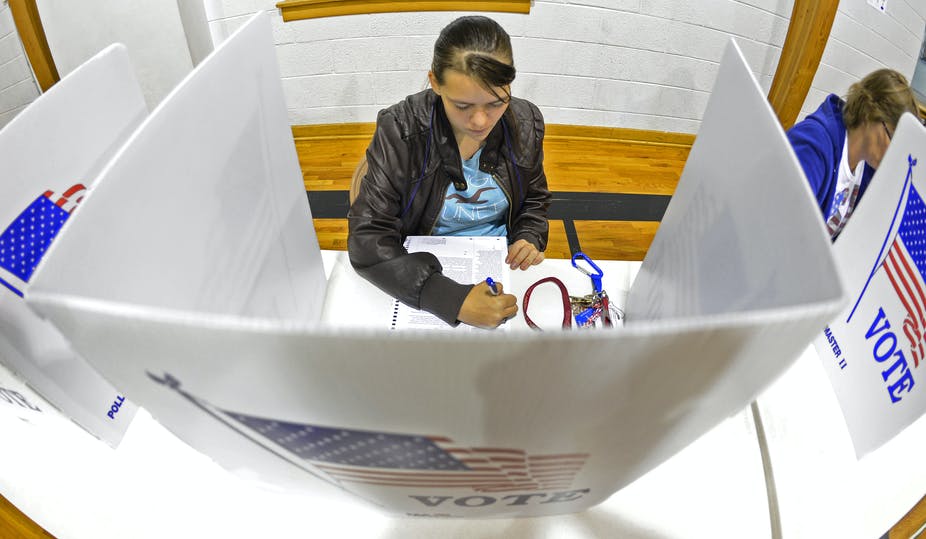‘¿Qué bolá? (What’s up?)’, Barack Obama tweeted, using the local argot as he landed in Havana on Sunday 20 March for what the international media have widely touted as a ‘historic’ visit. Hazel Marsh, in Cuba during Obama’s brief stay on the Caribbean island, found an atmosphere of very cautious optimism on the ground.
What do people do when the incumbent US president, the first to do so in nearly a century, makes an official visit to their country? Decorate their streets and balconies with bunting? Wave flags? Don T-shirts, badges and stickers bearing that president’s image? Well, not if those people are Cubans, and not if their sense of national identity revolves around resistance to what their national hero, José Martí, famously referred to in 1895 as the monstruo (monster) represented by US imperialism. ‘This Sunday, at 4.19pm, the president of the United States, Barack Obama, arrived in Cuba’, wrote a journalist in the Trabajadores (Workers) national newspaper. ‘He was accompanied by his wife, Michelle, and by a light rain that by chance also arrived with him from the North, presaging what could be the last cold front of the season’.

As I walked around Havana during Obama’s stay, I found a distinct lack of excitement about the ‘last of the cold front’; Cubans going about their everyday lives did not seem too bothered by the visit, unless it had a direct impact on their livelihoods. ‘It’s terrible’, announced the taxi driver who transported me from José Martí airport to my casa particular accommodation on the evening of Sunday 20 March. ‘Oh’, I asked, ‘why is that?’, wondering whether my taxi driver was a fervent revolutionary and directly opposed to the ‘normalising’ of relations with the US. ‘No, this visit has been really bad for my work so far’, elaborated the driver. ‘Nearly all the roads in Havana have been closed because of security, so I’ve hardly had any clients all day’. Browsing the Ché Guevara paraphernalia on display in a gift shop in central Havana the next day, the woman who sold me a souvenir car registration plate enthused, ‘It’s fantastic!’. ‘Why’s that?’, I asked, wondering whether she was a fan of Obama and favoured the re-establishment of normal relations between Cuba and the US. ‘No’, she said, ‘I don’t know about that, but we’ve had so many tourists in our shop, far more than usual- we’ve sold loads more than we’d normally expect to sell at this time of year; it’s been great’.

When I asked them what they thought of Obama’s visit, most Cubans I spoke to simply raised their eyebrows and said ‘Veamos…let’s see’. Joining the clusters of people waiting outside the Gran Teatro de la Havana Alicia Alonso, where Obama was due to deliver a speech on the evening of Monday 21 March, I noted that about a quarter of those around me appeared to be tourists keen to witness the US president’s arrival. Cubans waiting to catch a glimpse of Obama reiterated to me that no US president had visited Cuba for eighty-eight years, that they hoped the bloqueo (economic blockade) would be gradually lifted, and how much they would like to be able to visit other countries as tourists, just as I was doing in Cuba. But they all said ‘Veamos… Obama isn’t going to be in office for that much longer, and after he goes, who knows what will happen? Let’s see’.
In a taxi on my way back to my casa particular that evening, the taxi driver asked me which country I liked best; Cuba, or Mexico, where, as I had told him, I had just been. ‘Gosh, they’re very different’, I answered, rather lost for words. ‘They’re both beautiful countries with fantastic people, great food and wonderful music. But in Mexico you see a lot of poverty, you see small children performing circus acts at the side of the road, hoping to earn a few pesos, and you can’t help wondering what kind of future they will have’. ‘In Cuba, we have laws that forbid child labour’, said the taxi driver. ‘I know Cuba gets a bad press abroad. They say we live under a dictatorship. Dictatorship! Where’s the dictatorship? In Chile, in Argentina, they had dictatorships…we also had a dictatorship, but Fidel (Castro) put an end to that. We don’t have a dictatorship in Cuba. What we do have is escasez económica (economic scarcity/shortages). We don’t want social change, we want economic change. If the bloqueo could just be ended, there’s nowhere else on earth I’d rather live then Cuba’.
Indeed, Cuba’s achievements since the revolution of 1959 are remarkable. Professor of business ethics at the University of Southampton, Denise Baden, points out that there is much the capitalist world can learn from the Cuban model; according to the UN Development Index, Cuba is ‘highly developed’, with a life expectancy of 79.4 years (higher than that of the US, which is 79.1 years), and there have been great advances in education and health care (both of which are free in Cuba), gender and racial equality, while crime rates are amongst the lowest in the world. And this has all been achieved despite Cuba’s GDP being a fraction of that of the USA (See https://theconversation.com/what-the-us-can-learn-from-cuba-during-obamas-historic-visit-55906 ). Cubans are highly conscious of these achievements, and do not want the ‘normalisation’ of Cuba-US relations to mean that they have to surrender them in order to become a free-market economy. ‘I’m afraid of that’, said the owner of the casa particular I stayed in. ‘They say that “development” brings with it changes, loss, the loss of health and education. And that worries me’.

On Tuesday 22 March, there was much analysis on state TV of Obama’s speech the previous evening. ‘Obama has offered us an olive branch, and we must accept it’, said one Cuban, interviewed on TV. ‘But we should remember that the US has been more enslaving than Obama claims. Obama clearly doesn’t know Cuban history, and we will never renounce our principles’. Another Cuban asked, ‘How can Obama understand Cuban history after fifty years of the bloqueo? He brings his imperialist discourse to Cuba, but what we’ve achieved, we have to defend. As Raúl (Castro) has said, we need to have mutual respect, and we have to keep defending what we have’. ‘This is an example of poder blando (soft power)’, said another interviewee. ‘We know what we have, in terms of health, education, and the humanitarian aid and practical help we supply for other countries like Haiti. We don’t want to change our regime. And if we’re going to talk about human rights, what about the bloqueo? That violates our human rights. If we’re going to talk about sovereignty, what about Radio Martí? (Radio Martí is a station, based in Miami and financed by the US government, that transmits newscasts and programmes to Cuba. The Cuban government believes the station violates international law, and views it as an attempt to create internal dissent in the country). What about Guantánamo?’. ‘Obama is the representative of an empire that has strangled us’, said a further interviewee. ‘We must never forget that’.
Before Obama’s arrival, British and US newspapers reported that protesters from the Damas de Blanco (Ladies in White)and other opposition groups had been ‘bundled into buses and police vans’ as they demanded ‘a Cuba without Castros’. When I asked one Cuban about these protesters, he told me that they had links with Cubans in Miami, who lost their political and economic privileges after the revolution and acted as a powerful lobbying group in the USA. It would be wrong to claim that there are no violations of human rights in Cuba; there have been times, most notably during the quinquenio gris (grey period) of 1971-76, when Cuban artists and intellectuals perceived to be encouraging dissent have experienced public condemnation of their work, blacklisting, imprisonment or enforced time in ‘voluntary’ labour camps. At a time when the revolutionary government was seeking to counteract United States influence on Cuban culture, the Cuban singer/songwriter Silvio Rodríguez was even banned from performing in the late 1960s because he publicly acknowledged the influence of The Beatles on his own music. However, while critics of Cuba tend to claim high levels of censorship and oppression, it should be noted that in 2015, the Inter-American Commission on Human Rights reported that it had received 2,164 complaints of human rights violations in the region that year. Seven of those concerned Cuba, and seventy-six concerned the USA. The countries with the highest incidences of reported human rights violations are all US allies in the region; Colombia (360), Peru (278), Argentina (246) and Mexico (149).
On my final evening in Havana, I went out in search of a copy of that day’s Granma, official newspaper of the Cuban Communist Party. I asked in a bookshop where I might be able to purchase a copy. ‘I’ve read what the British papers have to say about Obama’s visit’, I told the bookseller, ‘and I’d be really interested to read what the Cuban newspapers say about it’. ‘Ah’, the bookseller replied, looking me straight in the eye. You’re looking for the truth? La verdad está donde la descubres. Truth is where you discover it’. I still have no idea what he meant, but those words sum up Cuba’s essence to me: enigmatic, elusive, and in the eye of the beholder’s own ideology.
Hazel Marsh is a lecturer in Spanish and Latin American Studies at the University of East Anglia.
Image Credit: YouTube





